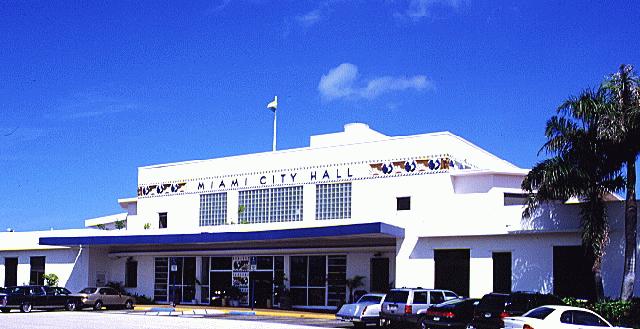Oooops!
The Florida Legislature is already knee deep in committee meetings and the budget was presented by the governor on Thursday. Many if not most municipal governments have already sent their legislative priorities and designated lobbyists to Tallahassee to fight for their pet projects and piece of pork pie.
But not Miami, where city commissioners apparently just realized they don’t have anyone advocating for Miami-Dade’s largest city — the state’s “flagship city” — in our state capitol. So they had an emergency meeting Friday afternoon to fix that.
In what was described as a bit of theater — sources say commissioners already knew they wanted Becker Poliakoff, one of South Florida’s premiere lobbying firms, to be chosen — the commission chose three firms: Becker, Ron Book and Capitol City.
Becker Poliakoff, one of South Florida’s premier lobby firms, represented Miami before former City Manager Emilio Gonzalez took on the role himself after 2017.
Read related: Miami manager says he did no wrong, exits in “couple of weeks”
Apparently, nobody was hired after Gonzalez was unceremoniously pressured to resign last year and this is beyond City Manager Art Noriega‘s skill set.
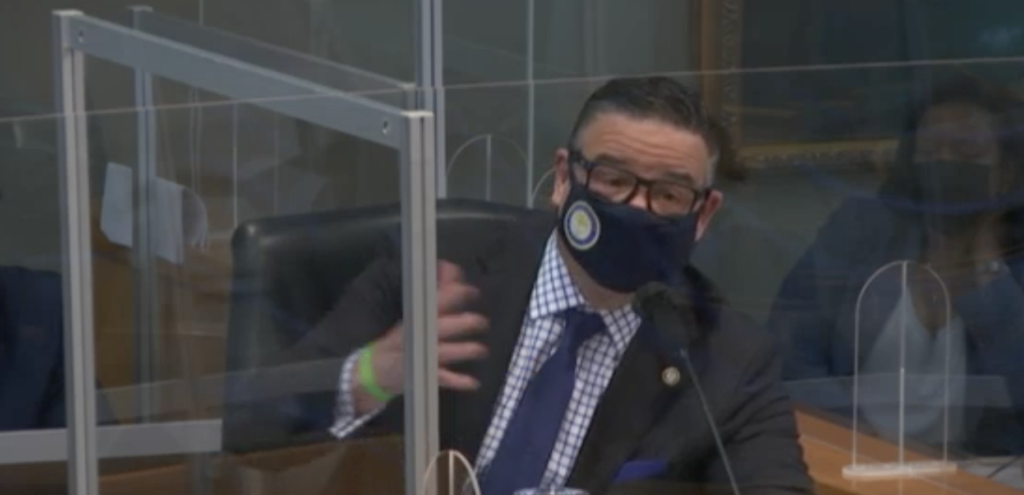
It’s not like Becker Poliakoff needs the business. In 2020, the firm billed more than $3.2 million to clients that include Big Sugar, the University of Miami, Univision and several cities, including South Miami, Pinecrest, Miami Gardens and North Miami Beach, as well Brevard, Collier and Palm Beach counties, according to the Center for Responsive Politics.
The commission meeting started at 1:30 p.m. and can be seen on the city’s website. Also on the agenda: A discussion about legislative priorities.
Among those is Florida House Bill 387, amending the “Property Assessed Clean Energy program,” known as PACE, to help property owners retrofit their properties to protect them from flooding. The city wants it passed and there’s a consideration sponsored by commissioners Manolo Reyes and Alex Diaz de la Portilla.
This is an effort to mitigate the costs of septic to sewer conversions that all politicians are talking about these days as a must-do measure to prevent contamination issues when the sea level rises.
Commissioner Joe Carollo said he wants to lobby Tallahassee to give cities more eminent domain power in order to build affordable housing for homeownership.
“If the city needs a piece of land and there’s no way that, after we tried, that they aren’t willing to sell to us or want an outrageous price, then we can turn to eminent domain,” Carollo said, adding that it would be for non-homesteaded properties where the property owner doesn’t reside.
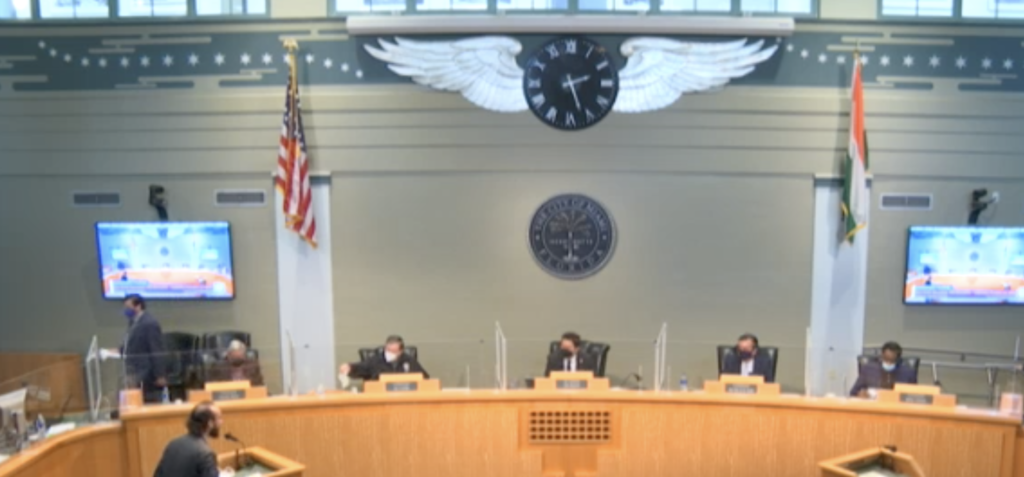
“The minute we build, we create a system so that the people who would get a mortgage would be able to get their own home. The city gets its money back and we’re out of the picture,” Carollo said.
“At the same time, you are giving people pride in owning their own place and…you would hope each year the property would go up a little bit in value.”
Diaz de la Portilla questioned the “constitutionality of going from private to public to private” again. But Carollo said “we feel that could be bypassed.”
Bypassed? What?
“The biggest hurdle is that can we get it accomplished up in Tallahassee with the frame of mind that is up there and, two, since we missed the deadline already we’re going to have to get it through an amendment somewhere,” Carollo said.
“It’s going to be a game changer for people who have their own place to live at an affordable price and they’re going to own it. And we’re going to be able then to be recycling that money every couple of years versus giving it away with the workforce housing promises or building ourselves and then we’re sitting on that money for years go come… which means that we’re only going to be able to do a very minute amount of affordable housing.
“This can make a difference,” Carollo said, adding that it could become a national model program. “We’ll be the test.”
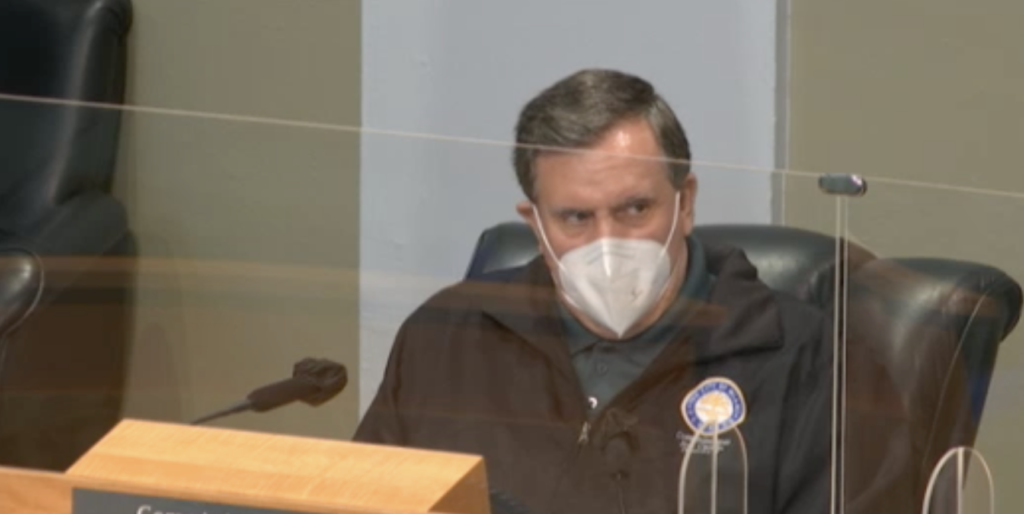
One speaker at City Hall asked the city to urge the legislature, both at the state and federal level, to help Miami with three “cultural tourism” related pieces of legislation to help the music, film and art industry has been hit hard by the COVID-19 crisis.
More people made movies and TV shows in Kentucky than in South Florida last year, the speaker said.
Lobbyist Ron Book, via Zoom from his car, told commissioners that while it was too late to get into the appropriations in the House budget, they may still be able to get something in the Senate appropriations.
But he suggested trimming the list down to two or three priorities.
“Money is tight. Shortfall is there,” Book said, adding that legislators “are going to go through a significant budget cutting exercise, going deep into the base projects.” The city has a better chance of getting two or three projects funded if it concentrates on those, he explained.
He also said that since the bill drafting deadline passed — yeah, this discussion among commissioners is way late — that the “best you can do” on substantive bills and items is to propose amendments.

Carollo made the motion to engage the three firms who were rated the top three — Becker Poliakoff, Capital City Consultants and Book — and for Noriega to negotiate contracts with all three for what he is allowed to spend. And if the city needs someone else on a particular bill or issue, Noriega can come back to the commission and ask, Carollo added.
“We have everything we need in those three,” he said, pointing out the assets in each. Capital city has good relationship with Gov. Ron DeSantis, Book “has been an institution up there. He has contacts at all levels.” And Becker Poliakoff is a “well-balanced firm” that has worked for the city before. He pointed out that Becker lobbyists had found House sponsors for each of the city’s asks even before they were hired.
Reyes, of course, agreed. “They were rated and there is a reasons why they were rated one, two three and I think we shouldn’t go away from it.”
But Diaz de la Portilla said the ranking was done on longevity not effectiveness. He said one of the other lobby firms on the list has a good relationship with the Senate president. He said another firm has a good relationship with the chair of the appropriations committee.
The three people who ranked the firms “are not really Tallahassee experts,” said The Dean, who considers himself a Tallahassee expert. “They all have limited amount of knowledge to rank firms and they rank them that way because of how long they have been in business.
He said that he would rather have the city manager choose four or five firms based on their relationships with certain legislators or bodies and Chairman Ken Russell said he wanted to see the choices reflect the issues that they have been successful with in the past.
Noriega suggested substituting Book for another lobbyist or firm because, he said, the veteran was too busy to make Miami a priority.
Read related: ‘Double agent’ Lobbyist Ron Book gets county reprieve from mayoral wannabe
“He has a lot of clients,” Noriega said, adding that he would prefer “someone who maybe would give us more attention and we would be more of a marquee client for them.”
One of Book’s clients is Miami-Dade County and there may be a time when the two municipal bodies disagree on a bill or an item. Also, he represents a lot of private clients and that could represent a conflict of interest, as it did in 2018 when Book helped sneak puppy mill language into two bills for his client Petland that would severely limit municipalities banning puppy mills.
Becker Poliakoff also represents South Miami and Pinecrest, cities which could be on the opposite end of an issue that Miami supports or opposes.
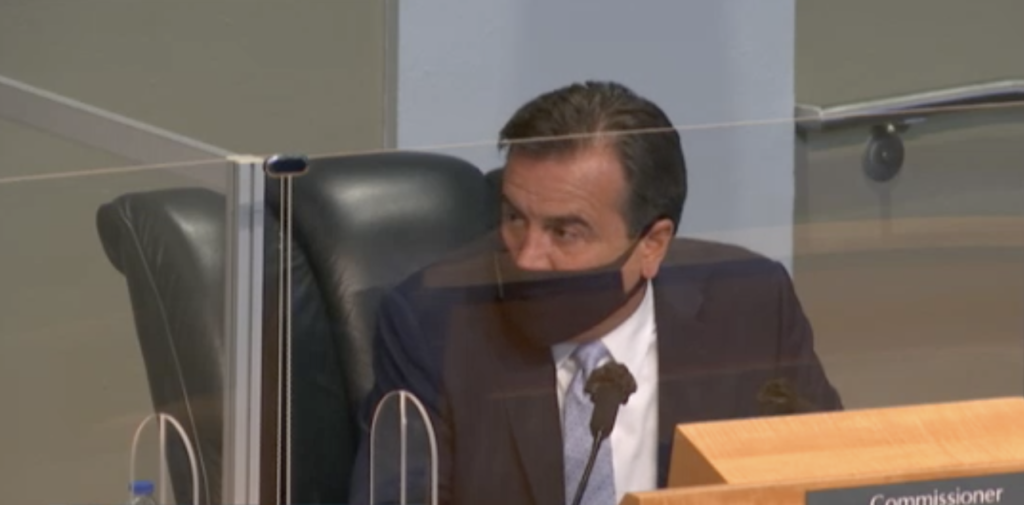
Carollo took another jab at ADLP in what has been a very public bromance breakup, saying that he’s not trying to get his buddy a job and that the three firms could take care of the city. He amended his motion to allow the manager to come back to the commission if he needs the other firms.
Which is basically nada, since the manager could always do that with a pool of 12 pre-approved firms.
“I know someone in every one of these 12 firms,” The Dean shot back. “Because I was in Tallahassee for 16 years.”
He said that $500,000 on lobbying fees was not too much and gave other cities’ example. Doral, with a population of 60,000, spent $216,000. Miami Beach, with 90,000 people, spent $214,000, in addition to a house lobbyist.
“We need to invest in getting money from Tallahassee because we are going to get a lot more money than $500,000. Doral got more money in their budget last year than we did because you get what you pay for,” Diaz de la Portilla said, adding that he would spend more to have a Washington team.
“I say $1 million if it brings back $10 million.”
The commission told Noriega to come back with a timeline and recommendations on a state and also a federal legislative priority package.

